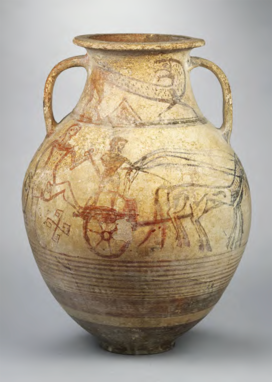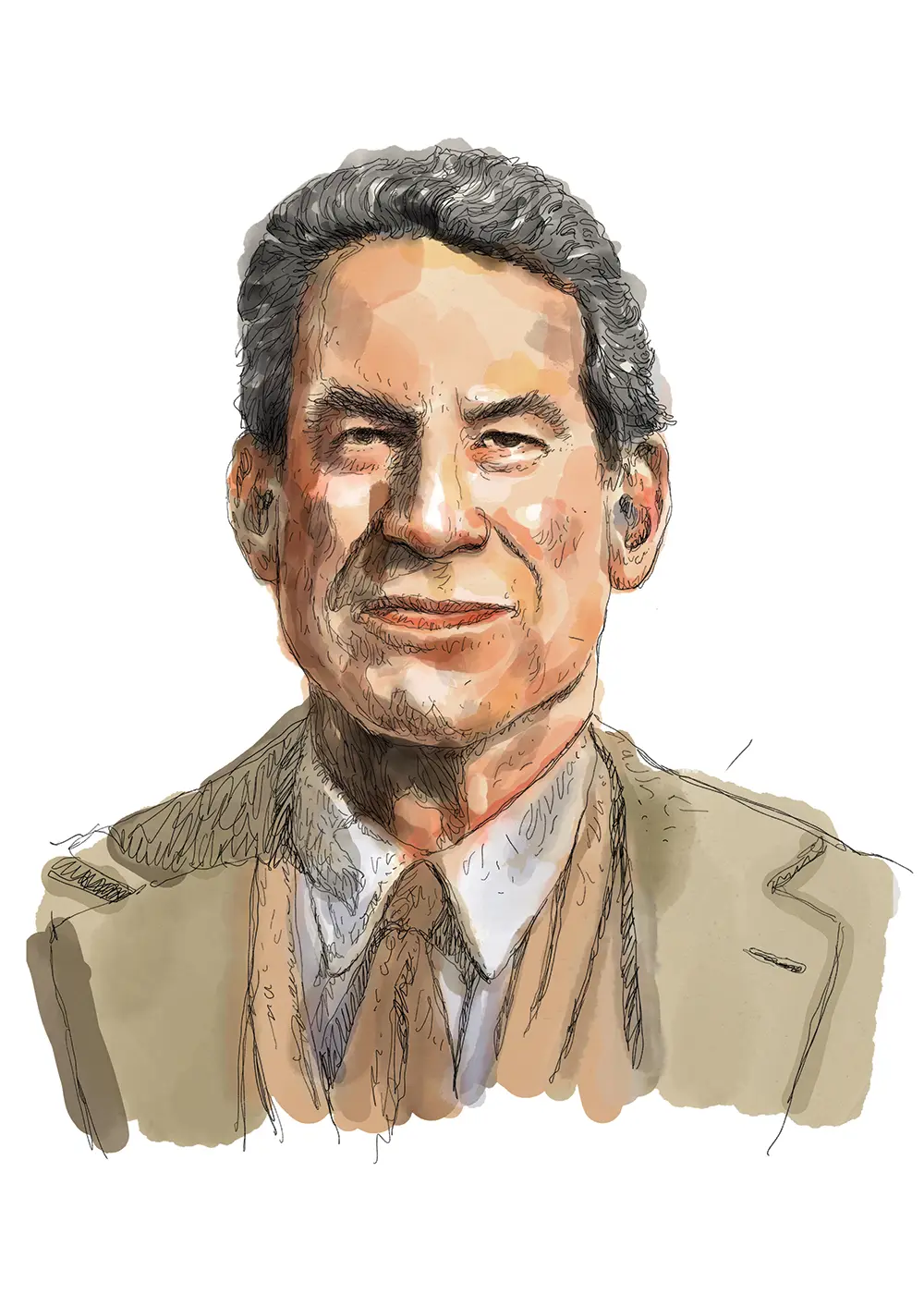Antiquities Dealer Edoardo Almagià ’73 Charged by Manhattan DA
Almagià faces charges of conspiracy, taking part in a scheme to defraud, and possessing stolen property owned by Italy
This story has been updated to include a response from Edoardo Almagià ’73 and additional information from the Princeton University Art Museum.
Art dealer Edoardo Almagià ’73 was charged in late October for his suspected role in looting Italian antiquities, according to an arrest warrant provided by the Manhattan District Attorney’s Office.
Almagià faces charges of conspiracy, taking part in a scheme to defraud, and possessing stolen property owned by Italy.

Almagià, who is based in Italy, is accused of trafficking looted antiquities for decades, as detailed by PAW in a feature story that was published in September 2023. More than 200 items, valued at $7 million, that are suspected to have been trafficked by Almagià have already been repatriated by the Manhattan DA’s office, which has been working with the Italian government on the matter. The antiquities have been plucked from the collections of various prestigious museums, including the Metropolitan Museum of Art and the Princeton University Art Museum (PUAM).
According to the warrant, Almagià sold 14 stolen antiquities to PUAM, donated six more items to the museum, and loaned six additional pieces over the years. According to the museum, nine pieces connected to Almagià (three accessioned objects and six loans) were among the 11 objects that the Manhattan DA’s office seized from Princeton in March 2023. In 2012, the University announced it had returned six Almagià-connected objects to Italy, some of which were composed of multiple fragments. (The museum now counts this as 16 transferred objects.)
PUAM confirmed that two additional items — a lip cup from 550 B.C. that the museum purchased from Almagià in 1991 and an amphora from 700 B.C. that was at one point sold by Almagià and then given by bequest to the museum in 1998 — were transferred in March 2024 as part of its work with the Manhattan DA’s office. As of Nov. 1, PUAM’s collection included 16 items with ties to Almagià.
“Many individuals involved in the Almagià trafficking network met at either Princeton University or [the] Princeton [University Art] Museum,” according to the warrant.
Assistant District Attorney Matthew Bogdanos presented the 79-page arrest warrant to criminal court judge Rachel Pauley, according to The New York Times, which also reported that the DA’s office will soon request that Interpol file an international arrest alert for Almagià and work with Italian officials to begin extradition proceedings.
“If Almagià is the first name on your provenance, it is stolen,” Bogdanos, who heads the Antiquities Trafficking Unit, told PAW last year. “That is well known.”
In 2023 interviews with PAW, Almagià denied accusations of wrongdoing, stating that some of the items came from a family collection and he “freely” bought others in open markets.
Almagià told PAW via email in early November that “this story is nothing but a witch hunt and one of the many episodes of scarlet lettering that comes from institutions that are corporatist, scarcely democratic, and have no love for objects and no understanding of the human mind.”
A 1909 Italian law declares antiquities the cultural property of the state, including items that were excavated illegally or exported without documentation.
The warrant alleged that Almagià had the “complicit assistance” of former PUAM curator Michael Padgett, and that key relationships with other scholars, art museum directors, and collectors helped Almagià “to publish and facilitate the sale of his stolen objects.”
The warrant also said, “Padgett’s primary role in the conspiracy was to use his reputation and contacts to include Almagià into a world of high-profile clients and curators from major U.S. museums.”
Padgett refuted those allegations in a statement to The New York Times, citing a thorough review by the University that found no evidence of wrongdoing and an Italian judge’s 2012 dismissal of Italy’s investigation of accusations made in 2010. “I was not criminally complicit with Edoardo Almagià or anyone else,” he said. Padgett retired from the University in 2021.
Almagià said to PAW of Padgett: “I want to tell you that you should be proud of a gentleman like Michael Padgett whom I hear has also been slandered.
“You should be proud also of me because I did a lot of positive work in the field of ancient art and have collaborated with Italian and foreign archaeologists whenever they needed my collaboration. If I had been given the time and the occasion to do more I could really have contributed in more than one way to the field of ancient art.”












No responses yet